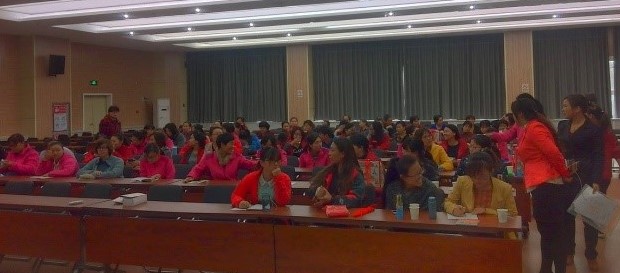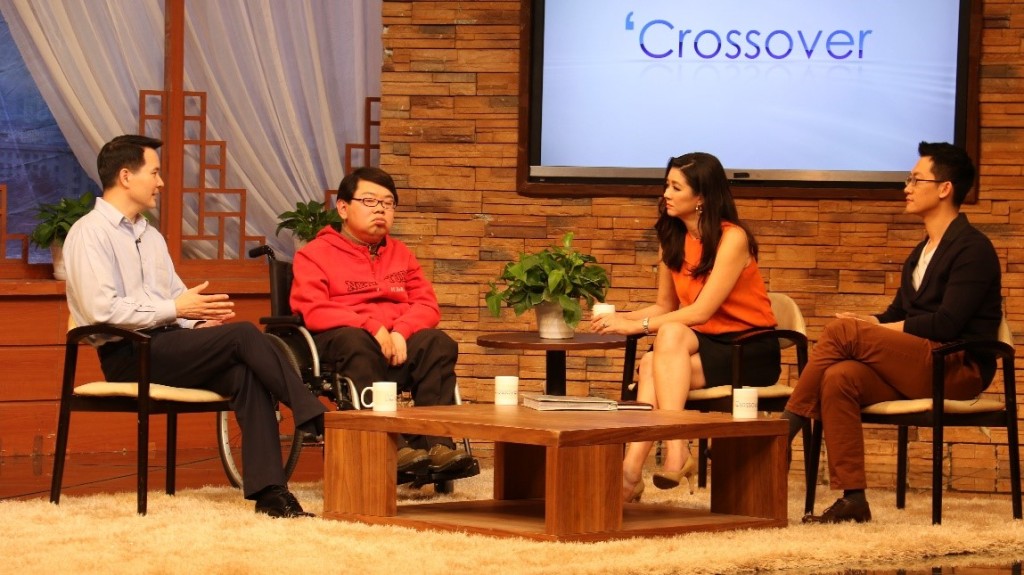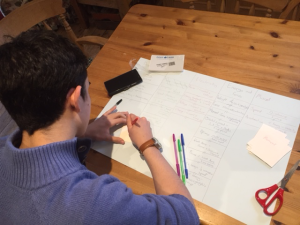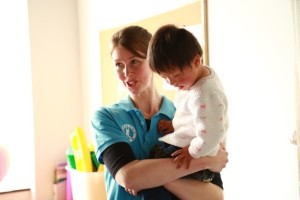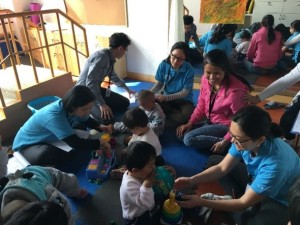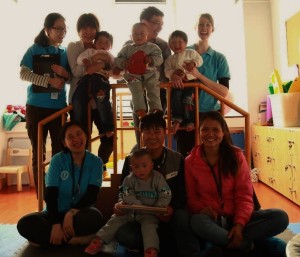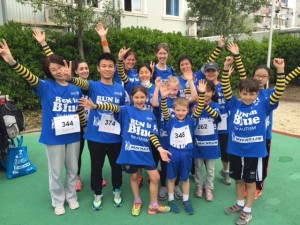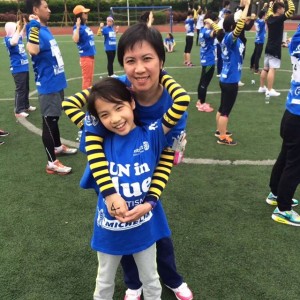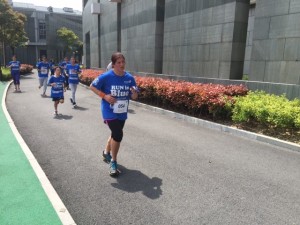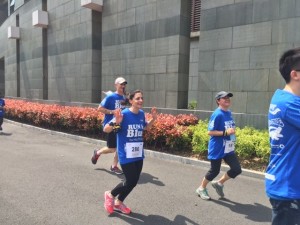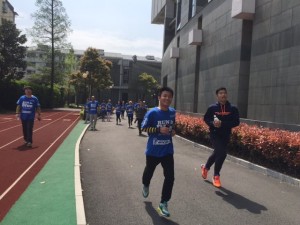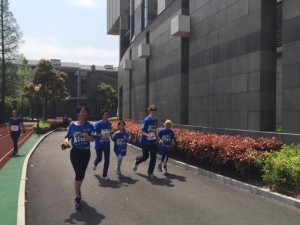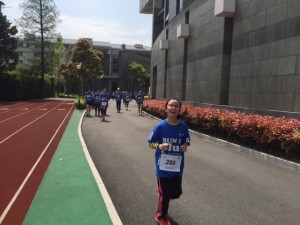Launch of Pre-Conference Workshop Series
The International Society of Physical and Rehabilitation Medicine for Developing Countries (ISPRMDC) will be held again this year in China from July 28 to 31. Attending professionals, participating organizations, and the International PRM community will have the opportunity to join a series of pre-conference workshops hosted by LIH Investment & Management, a major conference sponsor. Pre-conference workshops addressing trending rehabilitation topics will be held on 28 July in Kunming and will be led by four LIH advisory board members who are internationally renowned experts in the field: Dr. Matthew N. Bartels, Dr. Gerard Francisco, Dr. Heakyung Kim, and Dr. Alice Jones.
Presenter Spotlight and Leading Topics
Each of the four presenters have made distinguished contributions internationally in their specialties under the rehabilitation pillar. They will share their profound knowledge and expertise in the following areas:
Dr. Matthew N. Bartels – Physical Medicine and Rehabilitation Medicine Physician in Cardiac Rehabilitation: Restoration of Function and Health
As the current Chairman of the Department of Rehabilitation Medicine at Montefiore Medical Center/Albert Einstein College of Medicine in New York, Dr. Bartels has expertise in the area of cardiac rehabilitation. Prior to his current role, he was the director of Cardiopulmonary Rehabilitation at Columbia University where he established the Human Performance Laboratory.
The workshop that Dr. Bartels will lead aims to describe the role of Rehabilitation Medicine Physicians in the management cardiovascular disease and dysfunction. Participants will have the opportunity to gain and practice basic principles of Cardiac Rehabilitation by learning its purpose, goals, and challenges; know the appropriate assessment and interventions before and after ischemic heart disease, including patients after revascularization; understand the expanded role of rehabilitation in other cardiac patients including heart transplant and heart failure. After participating in this workshop, participants will also be able to a plan for patient transitions from acute hospitalizations to outpatient care and community maintenance.
Dr. Gerard Francisco – Contemporary Strategies for Post-stroke Spasticity Management
Serving as the Chief Medical Officer of TIRR Memorial Hermann/Memorial Hermann Rehabilitation Network (ranked #2, Medical Rehabilitation and Research, United States), Dr. Francisco is known as a leading expert in the assessment and management of spastic hypertonia and related conditions. He is not only a successful author of papers and book chapters in spasticity management, he is a dedicated researcher on neuromodulation, human-machine interfaces, and robotics to aid post-stroke and spinal cord injury rehabilitation. He has received numerous grants and awards, including a National Institute of Health award for investigation of brain-robot interface to enhance post-stroke upper limb recovery. Recently, he was named Distinguished Member by the American Academy of Physical Medicine and Rehabilitation (AAPMR). In June 2016, he will receive the Sidney Licht Award from the International Society of Physical and Rehabilitation Medicine (ISPRM), an honor given to physiatrists who have made consistent contributions to the advancement of international physical and rehabilitation medicine.
In the upcoming workshop, Dr. Francisco will be co-presenting with Dr. Lijuan Ao (Vice Chairman of the China Association of Rehabilitation Medicine, CARM) to discuss the spasticity characteristics, management of stroke patients, and strategies for Botox injections. A live injection demonstration will be provided in the second phase of the workshop. After the workshop, participants will be able to describe the pathophysiology of spasticity, evaluate clinical presentations of post-stroke spasticity, list therapeutic options for post-stroke spasticity, and demonstrate basic botulinum toxin injection technique.
Professor Alice Jones – The role of a Physiotherapist in Cardiac Rehabilitation
Born in Hong Kong, Professor Jones is currently an Honorary Professor at the University of Sydney and visiting professor of Kunming Medical University, Sichuan University, Fujian University, and Shanghai University of TCM in China. In the early years of her professional life, she spent over 10 years at the Grantham Hospital in Hong Kong as a Physiotherapist. As a dedicated researcher and educator, Dr. Jones has over 110 refereed publications and she takes an active role as an overseas consultant in physiotherapy, appointed by the Rehabilitation Therapy Education Committee of China Association of Rehabilitation Medicine.
Professor Jones’ workshop will discuss the role of physiotherapist in different situations including before and after cardiac surgery and during outpatient rehabilitation of patients with cardiovascular conditions. The workshop will combine general discussion and case study to enabling participants to acquire a clear understanding of the concept and challenges of cardiac rehabilitation; perform appropriate assessment and intervention before and after cardiac surgery; assess, set goals, and prescribe an appropriate and effective exercise program to people at risk of or with cardiovascular events; monitor physiological responses to exercise during the exercise program; and record appropriate outcome measures of the cardiac rehabilitation program.
Dr. Heakyung Kim – Strategies for Spasticity Control in CP Children
Dr. Kim serves as A. David Gurewitsch Professor of Rehabilitation Medicine and Pediatrics at Columbia University Medical Center. She is a board-certified physician in Physical Medicine & Rehabilitation and Pediatric Rehabilitation Medicine with a specialty in single event multilevel chemoneurolysis (SEMLC) with botulinum toxin and phenol injections, botulinum toxin injections to salivary glands for drooling management, intrathecal baclofen (ITB), and cardiopulmonary rehabilitation. Despite her various leadership roles at various hospitals and university medical centers, Dr. Kim has also put wholehearted passion into education by giving numerous national and international lectures and workshops on the topics of spasticity management, cerebral palsy, pediatric brain injury, and pulmonary rehabilitation. She has been working internationally to build a “comprehensive team approach for children with special needs.” Dr. Kim has been recognized as one of “America’s Top Doctors” by Consumers’ Research Council of America (2005-2015), “America’s Top Doctor” by U.S. News and New York Magazine (2011-2015). She has also received recognition for outstanding teaching at Columbia/Weill Cornell Medical Center/New York Presbyterian Hospital in 2015, and has twice earned Temple University School of Medicine’s Department of Physical Medicine & Rehabilitation “Teacher of the Year” award.
In Dr. Kim’s workshop, participants will develop knowledge of strategies for spasticity control in children with cerebral palsy. General discussion and demonstration will be provided to help participants achieve the following goals: understanding the need for early intervention and continuum of care for children with spasticity; describing assessment options for patients with spasticity – Modified Ashworth Scale, Modified Tardieu Scale, Hypertonia Assessment Tool; delineating current available spasticity management; understanding the dosing, localization of botulinum toxin injections; being able to describe post botulinum toxin rehabilitation therapy.
Registration
Who should attend?
Dr. Bartels’ Session: Rehabilitation Medicine Physicians either working with cardiovascular patients or interested in starting to work with this population as well as Cardiologists, Internists, and Chest Surgeons.
Dr. Francisco’s Session: Physiatrists for adults
Dr. Jones’s Session: Physical therapists working with cardiovascular patients; however, doctors and nurses working in a cardiac rehabilitation unit are welcome to participate.
Dr. Kim: Physiatrists for both adults and pediatrics
How do I apply?
Detailed registration instruction is available at www.isprmdc.org
Individual registration please apply through the official website above, group registration please email request to isprmdc@imiglobe.org.
Note: Registration for the whole conference is a prerequisite to attend the pre-conference workshop series. Please register to attend the workshop(s).
Customer Service
Who should I contact?
Huanya Medical Technology Consulting LLC
Address: Rm.520, 928 Xikang Road, Jingan District, Shanghai, China
For registration inquiry, please call +86-21-63016551-8011
For conference sponsorship inquiry, please call +86-21-63016551-8005
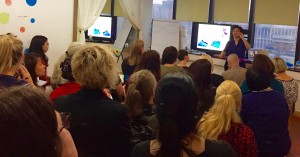 April saw another successful event in our Twilight Training series! On Wednesday, 20th April we welcomed a group of 30 teachers and parents to our Shanghai clinic. Anna Tan Pascual, Occupational Therapist, led a session on the factors affecting handwriting development, identifying children who need further help, and practical strategies to encourage handwriting development.
April saw another successful event in our Twilight Training series! On Wednesday, 20th April we welcomed a group of 30 teachers and parents to our Shanghai clinic. Anna Tan Pascual, Occupational Therapist, led a session on the factors affecting handwriting development, identifying children who need further help, and practical strategies to encourage handwriting development.




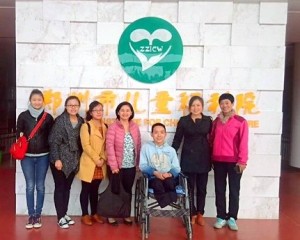
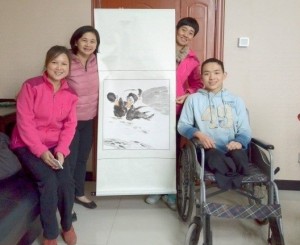 Since last October, Anna Tan Pascual, Occupational Therapy Team Lead at LIH Olivia’s Place Shanghai, has traveled to ZICW once a season to train their teachers. Using her weekends, Anna departs for Zhengzhou on a Thursday evening, provides training on Friday and Saturday, and returns to Shanghai on Saturday evening. She has given training on the role of occupational therapists and how OT’s work, developing fine motor skills in children, and sensory processing systems and disorders. She has also shared her extensive knowledge of working with blind and low-vision children. In addition, there have been opportunities to provide assessment and therapy demonstrations for the Zhengzhou team. In between two face to face workshop, Anna arranged an online video Question & Answer session. Teachers at ZICW sent their questions first, for Anna to review. Anna emailed replies for their staff to review and offered further discussion in the online Q&A. Anna’s efforts were supported by a bilingual LIH Olivia’s Place Communications Team.
Since last October, Anna Tan Pascual, Occupational Therapy Team Lead at LIH Olivia’s Place Shanghai, has traveled to ZICW once a season to train their teachers. Using her weekends, Anna departs for Zhengzhou on a Thursday evening, provides training on Friday and Saturday, and returns to Shanghai on Saturday evening. She has given training on the role of occupational therapists and how OT’s work, developing fine motor skills in children, and sensory processing systems and disorders. She has also shared her extensive knowledge of working with blind and low-vision children. In addition, there have been opportunities to provide assessment and therapy demonstrations for the Zhengzhou team. In between two face to face workshop, Anna arranged an online video Question & Answer session. Teachers at ZICW sent their questions first, for Anna to review. Anna emailed replies for their staff to review and offered further discussion in the online Q&A. Anna’s efforts were supported by a bilingual LIH Olivia’s Place Communications Team.